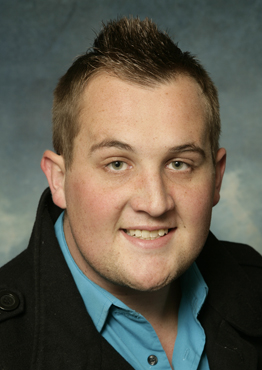Latest News Archive
Please select Category, Year, and then Month to display items
02 January 2025
|
Story Gerda-Marie van Rooyen
|
Photo Supplied
 Leading the research in South Africa is Prof Linus Franke from the Department of Soil, Crop and Climate Sciences.
Leading the research in South Africa is Prof Linus Franke from the Department of Soil, Crop and Climate Sciences.
Scientists are actively pursuing the successful breeding of diploid hybrid potatoes from inbred lines. This is expected to revolutionise potato breeding as it holds the key to rapid genetic progress. It will introduce new varieties for commercialisation through seed. Currently, existing potato variants have a gene that renders self-pollinated seeds infertile.
Prof Linus Franke, an academic in the Department of Soil, Crop and Climate Sciences at the UFS, is leading the research in South Africa. “This technology allows the production of genetically uniform potato seed that is easy to transport and largely disease-free.” He says this differs from conventional breeding whereby only vegetative propagation is possible due to tetraploid varieties in potatoes. It also risks carrying pests and diseases from one generation to the next – leading to the accumulation of pests and diseases with each round of multiplication.
Seed innovation
Prof Franke explains that Solynta BV, a seed company based in the Netherlands that produces potato varieties that can be grown from seed, has included South Africa in their research efforts because it is one of Africa’s largest producers and exporters. Through his academic relationship with Wageningen University and Research, a Dutch institution renowned for its agricultural endeavours and food production, the UFS became involved in researching hybrid potatoes grown from seed.
Diploid seeds containing two sets of chromosomes allow easier gene manipulation to increase predictability and speedier genetic progress. The breeding approach enables the incorporation of tolerance to pests, diseases, abiotic stresses (cold, heat, drought) and other desired genetic traits.
Although Prof Franke is optimistic about this research, he is not blind to disadvantages. “Potato seeds are tiny and have little energy reserves, making it harder to grow potatoes from seed than from tubers.” He says potatoes from seed will take longer to cultivate than tubers, as farmers need to grow plantlets from seeds first, adding six weeks to the growing period. “It is possible that commercial farmers can grow potatoes directly from seed. Alternatively, perhaps more likely, specialised growers will produce tubers of potatoes from seed; these tubers are then sold as seed tubers to other potato farmers, who then continue their normal practices of producing potatoes for the market from tubers.”
Financial benefits
Prof Franke says farmers have reason to get excited. “Seed potatoes will reduce input costs, as varieties with enhanced tolerance to pests and diseases require less pesticides. Planting one hectare of potatoes requires three to four tonnes of potato tubers, but only one 25 g packet of potato seeds.” Since potatoes are a more valuable commodity than maize, this technology might also increase farmers’ income potential.
Distinguished Kovsie medical student bestowed with Abe Bailey Bursary
2013-10-14
14 October 2013
Residence head, SRC member, Golden Key International Honour Society member and now: Abe Bailey scholar as well. These are some of the achievements and leadership titles that Michael van Niekerk, a fourth-year MBChB student at our university, has under his belt.
One of 18 South Africans countrywide, Van Niekerk is to visit institutions in England and Scotland as a recipient of the prestigious Abe Bailey Travel Bursary for 2013. The scholarship acknowledges excellence in academics, leadership and community service and is awarded annually to third-year students and/or junior lecturers not older than 25 years of age.
The recipients of the 2013 Abe Bailey scholarship leave for Cape Town on 20 November 2013 to attend a two-day orientation process. Following this, they will then travel to London and Edinburgh, where they will visit universities, as well as places of interest such as London’s House of Lords.
Van Niekerk, who recently visited the USA as part of the Golden Key International Honour Society’s International Scholar Laureate programme, says it is an incredible honour to be this year’s Abe Bailey recipient for the UFS. "I am very blessed to not only excel in the medical field, but also in leadership and other aspects and I believe that this is absolutely grace from Above. I believe that this is an opportunity and a step to a better future. I don’t believe in being average and believe that this is an opportunity to prove myself and achieve more."
This Kovsie student says he has great plans for the future. "If it is God’s will, I would very much like to specialise in neurosurgery, cardiothoracic surgery or trauma surgery. I would like to be part of the Rhodes Scholarship and would strive to reach it."